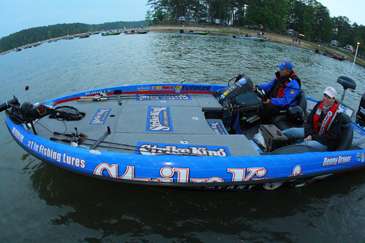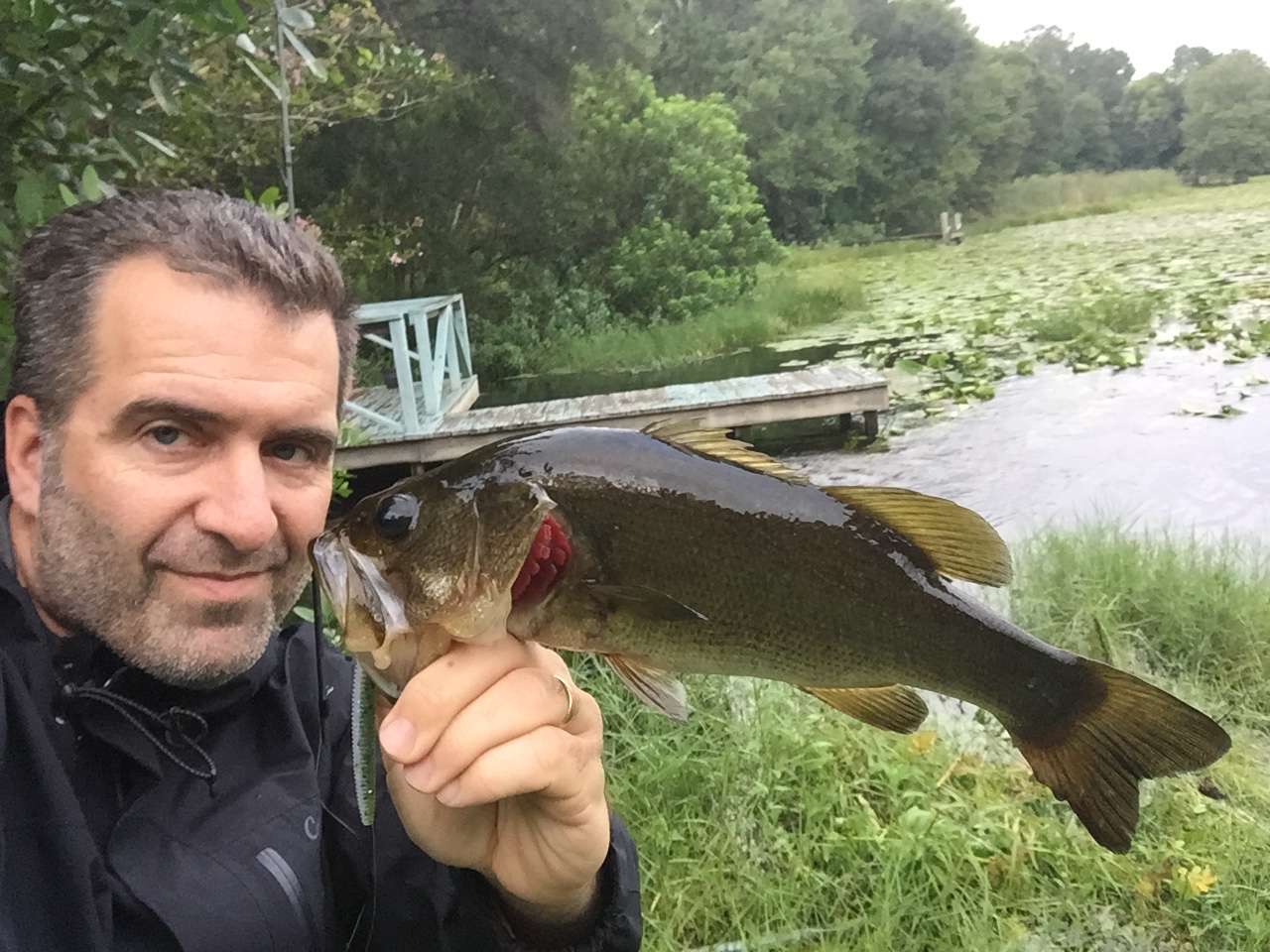
BASS legend Denny Brauer is a sociable guy until tournament day; then he wants absolutely no company. Admittedly obsessive about finding unfished areas, the 20-time Bassmaster Classic qualifier spares no effort in avoiding crowds. But when certain scenarios make fishing “used” water inescapable, you can bet Brauer’s is a well-conceived plan.
The first step is sizing up the venue he’s fishing. Regardless of acreage and shoreline, seasonal movements may leave part of the lake unfishable, so anglers will share smaller areas of productivity. Lake popularity is another important element. The more press a body of water gets, the more traffic it receives. Tournament anglers typically see lighter traffic until the weekend crowds arrive.
On the tactical side, Brauer said whenever he knows fishing pressure will become an issue, he’ll do his best to minimize its effects. He won’t, however, make the mental mistake of ignoring its relevance.
“I’ve always tried to find areas off the beaten path and consider angling pressure as a part of my strategy,” he said. “I prefer fishing patterns rather than spots because angling pressure could take me out of the game if I relied on particular spots.”
Brauer said he’ll rarely move into an area upon seeing another angler depart. Nevertheless, recognizing recently fished spots is a valuable skill. For example, frog tracks and/or blow-up holes indicate recent action over weed mats. Conversely, turtles will scoot from their sunning spots when boats approach, so those with dry backs have enjoyed a morning of solitude.
“You should take your awareness to a level where you’ll notice things like that,” Brauer advises.
When signs point to fresh activity, Brauer typically downsizes his baits. With his preferred flipping tactics, he may go to a lighter jig or a tube for a finesse presentation. Replacing brighter baits with natural colors helps too.
“If the spot offers a lot of heavy cover, I’ll try to get to areas that the average tournament angler won’t attempt to reach,” he said. “If I’m flipping brush or laydowns, I’ll try to reach way back into the cover; or if I’m fishing docks, I’ll try to cast as far back as possible. For grass lines, I’ll back off and try to find the scattered outside clumps that have not been hit.”
As Brauer noted, each scenario of “used” water presents different challenges and opportunities. Learning to quickly evaluate each situation and identify your options is essential to success. In some cases, he said, simply working a spot from a different direction than the previous boat makes enough of a difference to generate not only additional bites, but good ones at that.
“When you’re fishing points, most people will cast toward the shore and work shallow to deep,” Brauer said. “Sometimes, I’ll position my boat up shallow and cast downhill. A lot of times, you can get fish to bite when they’ve seen the same old retrieve time and time again.”
The mental game matters here, too. Just because another angler fished a spot first doesn’t necessarily mean they fished it correctly. “If fishing’s tough, it may take 10 perfect presentations down that log to get the fish to bite,” Brauer said. “If an angler ahead of you fishes through the spot too fast, he might not have made enough presentations to aggravate the fish into biting, so when you pull up there, the fish may be close to biting.”
Ultimately, Brauer said, self confidence is one of the most important tools in an angler’s arsenal. Believing you can fish a spot better than anyone else is essential to actually doing so. Such confidence helps keep one’s eye on the ball.
Brauer summarizes: “You have to maintain your focus so you’re not looking over your shoulder to see what someone else is doing and then miss a strike.”





